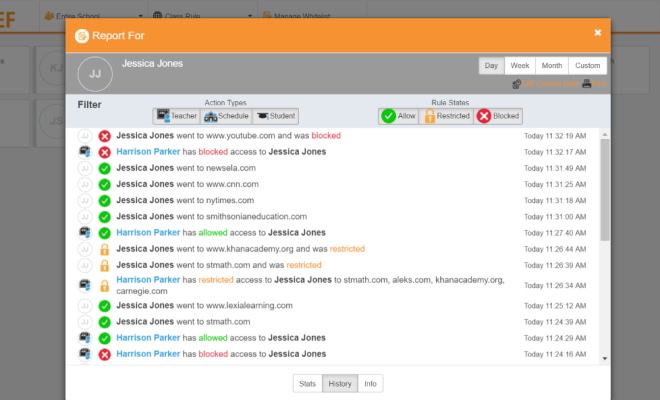Smart Seating Charts: The Key to Better Student Performance?

Teachers have long known that not every student is perfectly suited to traditional classroom setups, but with budgets tight, doling out individual attention is not always a reality. What if there was a way to make the traditional classroom setting work better for everyone though?
Research has found that classroom seating arrangements have a great impact on student performance and behavior. A study done by Angela Hammang at Montana State University found that when carefully crafted seating charts were in effect, teachers were twice as successful reaching students and that the attainment of lower ability students was doubled. In her research, Hammang experimented by moving students around in different seating charts to help them find their optimal place, in this case it was a biology classroom, based on learning styles and personalities. She also looked at groupings by gender and past grade performances. In all cases, the students performed at a higher level when the teacher assigned seating in a calculated manner. Students on the underachieving end of the spectrum showed the most improvement when classroom seating was developed with thought, and not simply assigned based on the alphabet or another random manner.
It’s clear that finding the right classroom seating assignment benefits students and educators, but how can it be accomplished without asking too much of the teacher’s time? How can the guesswork be removed?
A Simple Solution to Classroom Seating
Duncan Wilson has 16 years’ experience as a teacher who was looking for a way to streamline classroom practices to make the most of the time he spent with his students. He met software engineer Gintautas Sasnauskas a few years ago, and together they formed Edukey Education Ltd in 2011 to put the technology behind some of Wilson’s ideas. His first project? Software that guides educators through the process of assigning classroom seating based on reasonable conclusions about the students. ClassCharts is available to all teachers for free and allows for collaboration between classrooms and among teachers. It gives students the best chance at success, no matter what classroom they are in. Since the software became available in 2013, more than 70,000 teachers have signed up and more than 2.5 million students are in the system.
The software was developed based on the following truths that Wilson experienced in front of the blackboard:
- Positive student behavior is necessary for an optimal classroom experience for the children in it.
- Students’ personalities and how they interact with each other impacts their learning potential. Grouping students with complementary personalities leads to higher levels of achievement.
- Tracking student behavior, and sharing that information with other educators and administrators, allows for better resources and intervention.
- Teachers who are familiar with the names of all their students improve the self-esteem of those children and can better assign praise when it is due.
Aside from the “warm and fuzzy” feelings between teachers and students, and students and their peers, that intuitive seating charts provide, there are some practical implications too. There is more data than ever available on students and provided to educators – so much so that it can all be overwhelming and useless without the right implementation.
ClassCharts uses data rich information to present teachers with the key data that they need to make informed seating decisions and to tackle behavior issues. When integrated between classrooms, teachers can see how the behavior of their students ranks other places and together educators can create plans to guide students toward higher achievement. Schools that upgrade from the free version to the whole-school option give administrators and other school leaders the opportunity to see which students may need the help of extra learning resources. There are even options for informing parents of behavior issues, negative or positive, to keep them abreast to how their children are performing at school.
A New-Fashioned Approach
Most teachers have probably implemented seating charts at one point or another, and perhaps have put some of the ClassCharts concepts into play. It quickly becomes clear to a teacher when two particular students will not be productive near each other or when a certain student would fare better at the front of the classroom. The technology behind ClassCharts goes far beyond the seating basics though, and even calculates factors like students who receive free lunch, or have special education needs. The priorities of an individual school are also taken into consideration when ClassCharts creates a seating chart. All of the variables that a teacher would normally have to weigh are simply input and processed. Simple. And effective.
It’s interesting how something that seems as simple as a seating chart has such complicated implications for student achievement. With smart seating chart implementation, though, students can perform at a higher level and teachers can enjoy the good behavior that accompanies it.
Do you feel like seating charts positively or negatively impact your classrooms?
Take time to look at www.classcharts.com. I promise that you will not be disappointed.
Read all of our posts about EdTech and Innovation by clicking here.






